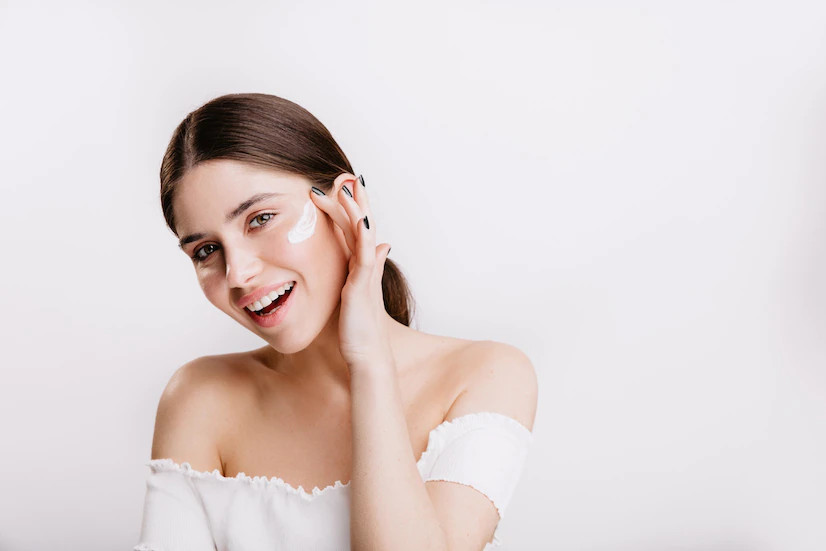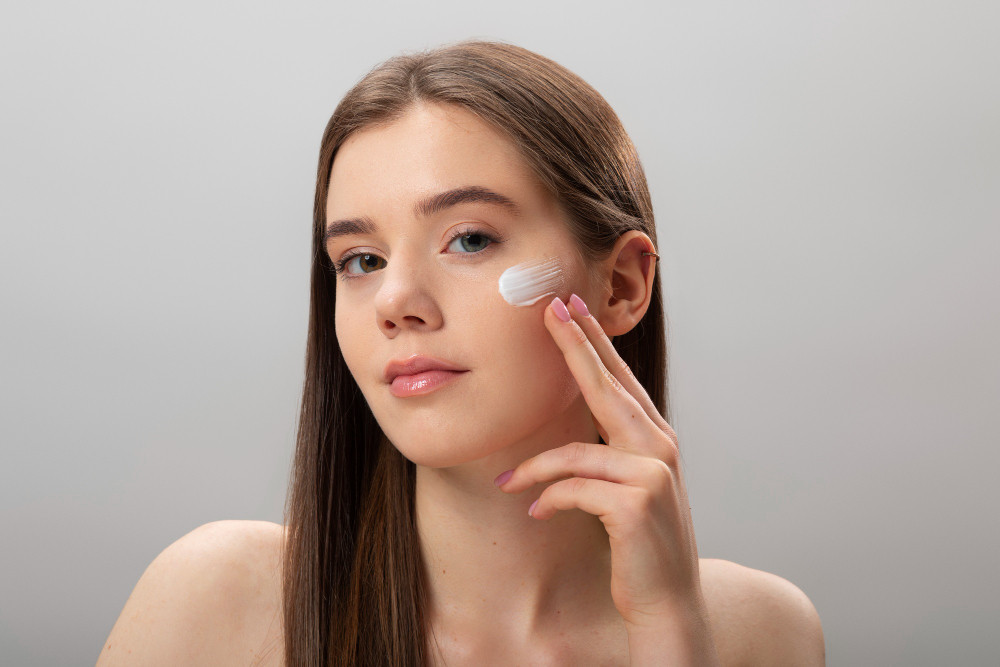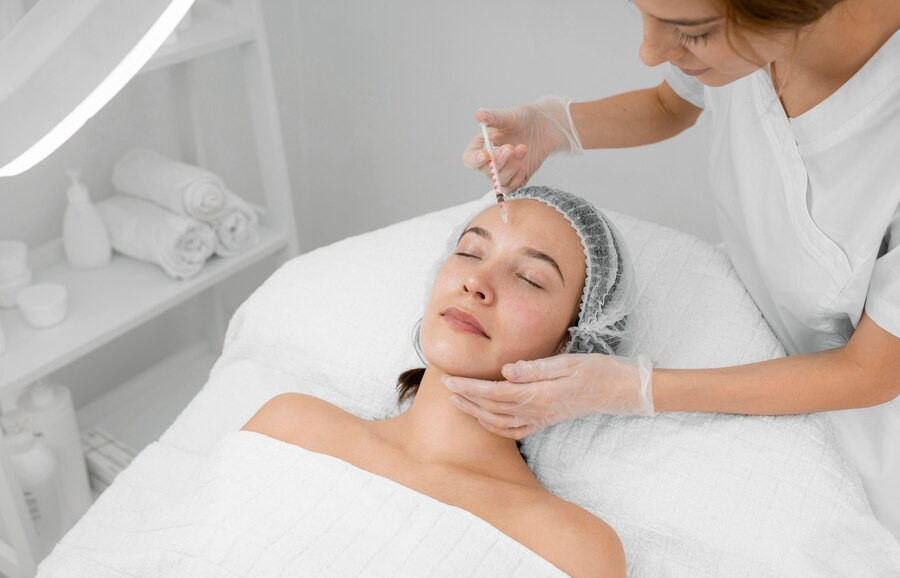Seiring bertambahnya usia, kolagen dan elastin di lapisan kulit akan rusak. Akibatnya kulit menjadi lebih kendur dan rentan terhadap kerutan.
Untuk mencegah penuaan dini, diperlukan perubahan pola hidup sehat seperti berhenti merokok, menggunakan tabir surya, membatasi asupan alkohol dan juga menggunakan krim anti-aging. Namun, benarkah krim anti-aging efektif membantu mengatasi tanda-tanda penuaan dini?
Tanda-Tanda Penuaan Dini, Apa Saja?
Penampilan kulit dapat berubah seiring bertambahnya usia. Tanpa perawatan, kulit Anda mungkin mengalami beberapa tanda penuaan berikut:
- Kasar, kering dan gatal
- Kendur dan kehilangan elastisitas
- Kulit menjadi lebih tipis
- Jaringan kulit mudah rusak
- Kulit mudah memar
- Risiko munculnya luka pada kulit
Baca Juga: Mengenal Bakuchiol, Alternatif Retinol untuk Mencegah Penuaan Dini
Perlukah Menggunakan Krim Antiaging?
Produk perawatan kulit antipenuaan dini ada bermacam-macam, mulai dari pelembap, serum, dan krim lainnya. Anda tidak bisa menghentikan tanda-tanda penuaan, namun dengan menggunakan produk anti-aging, Anda bisa memperlambat tanda-tanda penuaan seperti garis dan kerutan di wajah serta kulit yang kendur.
American Academy of Dermatologist merekomendasikan semua orang dewasa untuk menggunakan pelembap dan tabir surya setiap hari. Dua produk perawatan kulit ini dapat melindungi kulit dari paparan sinar UV dan menjaga kelembapannya hingga kulit tetap kenyal.
Selain itu, Anda juga disarankan menggunakan produk perawatan diusia 40-50an. Gunakan produk pelembap kulit yang berlabel anti-aging dan tabir surya secara rutin.
Belum Berusia 40 Tahun Bolehkah Menggunakan Krim Antiaging?
Beberapa ahli merekomendasikan penggunaan produk anti-aging sejak usia 20-an. Namun, Anda bisa menggunakan produk lainnya tanpa label anti-aging untuk membantu melembapkan dan mengencangkan kulit.
Berikut beberapa pilihan kandungan skincare untuk Anda yang berusia 20-30an:
- Vitamin C - bekerja mencerahkan kulit dan mengatasi kulit kusam. Vitamin C melindungi kulit dari radikal bebas, polusi udara, dan paparan sinar UV
- Hyaluronic acid - bahan aktif ini mengikat kelembapan pada kulit sehingga kulit menjadi lebih kenyal dan sehat
- Retinol - bahan ini menstimulasi produksi kolagen dan elastin di kulit sehingga mengurangi garis dan kerutan di kulit
- Alpha-hydroxy acids (AHAs) - AHA membantu mencerahkan kulit dan meningkatkan pembaruan sel kulit. AHA juga membantu merawat kulit dari kerusakan sinar matahari serta hiperpigmentasi pada kulit
- Copper peptide - bahan ini membantu meningkatkan produksi kolagen dan elastin serta bertindak sebagai antioksidan
- Ekstrak biji anggur - ekstrak biji anggur mengandung antioksidan dan antiradang yang dapat meningkatkan produksi kolagen
- Niacinamide - niacinamide berfungsi sebagai antioksidan yang membantu meningkatkan elastisitas kulit dan menjaga kelembapan kulit
Baca Juga: Sumber Vitamin A yang Bermanfaat untuk Kesehatan Kulit
Perubahan Gaya Hidup untuk Mencegah Penuaan Dini
Selain menggunakan produk anti-aging, Anda juga disarankan melakukan perubahan gaya hidup sehat, di antaranya:
- Menggunakan tabir surya dengan minimal SPF 30
- Menghindari beraktivitas di bawah sinar matahari langsung tanpa perlindungan, termasuk penggunaan tanning beds
- Berhenti merokok dan membatasi asupan minuman beralkohol
- Menghindari ekspresi wajah berulang seperti menyipitkan mata
- Berolahraga rutin dan makan makanan sehat
- Membersihkan wajah dengan produk berformula ringan
- Menggunakan pelembap setiap hari
- Menghindari produk perawatan kulit yang menyebabkan rasa sengatan atau terbakar
Jika Anda tidak yakin dengan produk penuaan dini yang dijual bebas di pasaran, Anda bisa berkonsultasi dengan dokter kulit. Dokter akan meresepkan produk perawatan kulit sesuai dengan kondisi dan kebutuhan kulit Anda.
Anda juga bisa memanfaat fitur konsultasi pada aplikasi Ai Care yang bisa diunduh di Play Store atau App Store.
Mau tahu tips dan trik kesehatan, pertolongan pertama, dan home remedies lainnya? Cek di sini, ya!
- dr Nadia Opmalina
Joanne Lewsley (2022). Which anti-aging products work best, and when should you start using them?. Available from: https://www.medicalnewstoday.com/articles/when-to-start-using-anti-aging-products
Mayo Clinic (2021). Wrinkle creams: Your guide to younger looking skin. Available from: https://www.mayoclinic.org/diseases-conditions/wrinkles/in-depth/wrinkle-creams/art-20047463
Cleveland Clinic (2020). What You Need to Know About Aging Skin. Available from: https://health.clevelandclinic.org/what-you-need-to-know-about-aging-skin/












